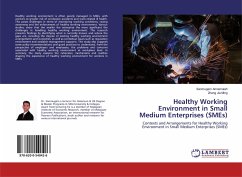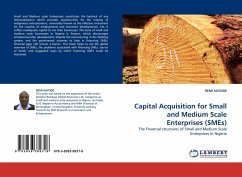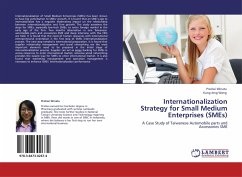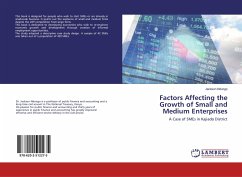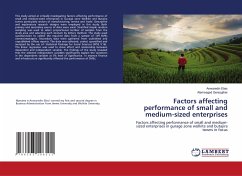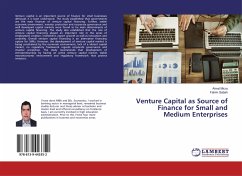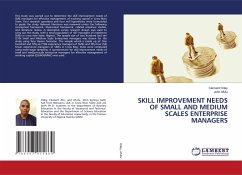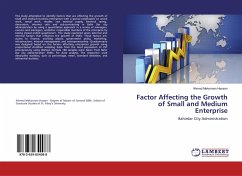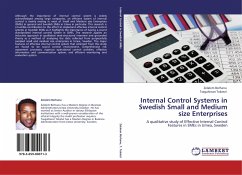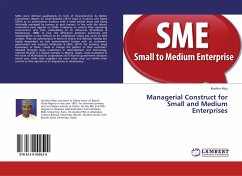
Managerial Construct for Small and Medium Enterprises
Versandkostenfrei!
Versandfertig in 6-10 Tagen
36,99 €
inkl. MwSt.

PAYBACK Punkte
18 °P sammeln!
SMEs were defined qualitatively (in term of characteristics) by Bolton Committee's Report on Small Business (1971) cited in Kuckertz and Mand (2016) as an autonomous business with a small market share and being informally managed by owners or part owners. In line with the above, researchers have agreed on SMEs' incapacity to control their operating environment and their vulnerability to its influences (D'amboise & Muldowney, 1988). In fact, the difference between autonomy and independence is very difficult to be understood unless you come to SME analysis. They are autonomous in terms of choice...
SMEs were defined qualitatively (in term of characteristics) by Bolton Committee's Report on Small Business (1971) cited in Kuckertz and Mand (2016) as an autonomous business with a small market share and being informally managed by owners or part owners. In line with the above, researchers have agreed on SMEs' incapacity to control their operating environment and their vulnerability to its influences (D'amboise & Muldowney, 1988). In fact, the difference between autonomy and independence is very difficult to be understood unless you come to SME analysis. They are autonomous in terms of choice and decision making but highly dependent on task environmental factors such as: customers, government and suppliers (Anderson & Ullah, 2014). For instance, large businesses, at times, create or change the pattern of their customers' demand through large investment in advertisement and technology; Indomie Noodle is a typical example in Nigeria. Again, large businesses in the form of Multinational corporations do influence government decisions world over, while their suppliers are more often than not within their control as they operate as an oligopsony or monopsony.



